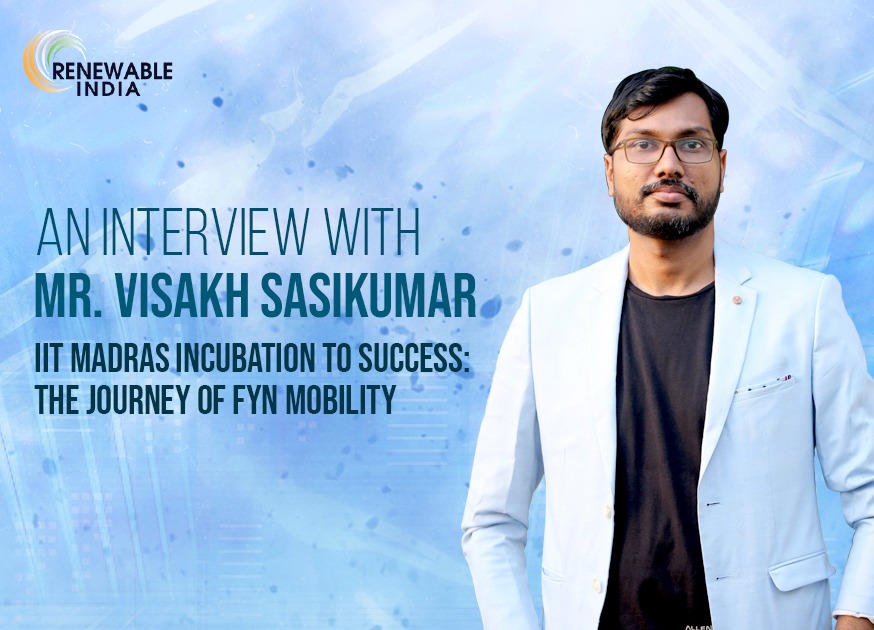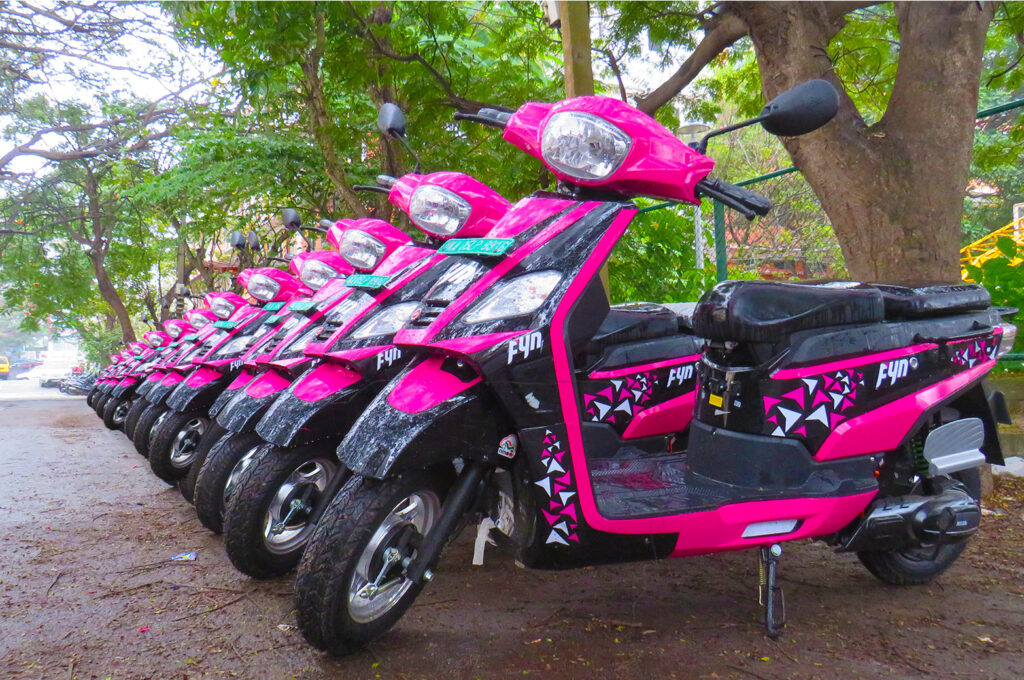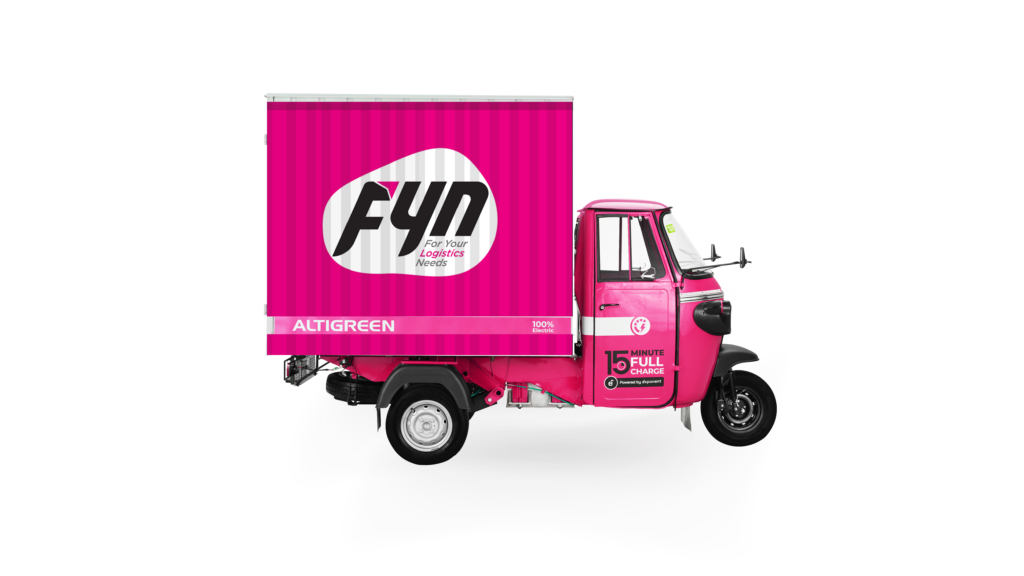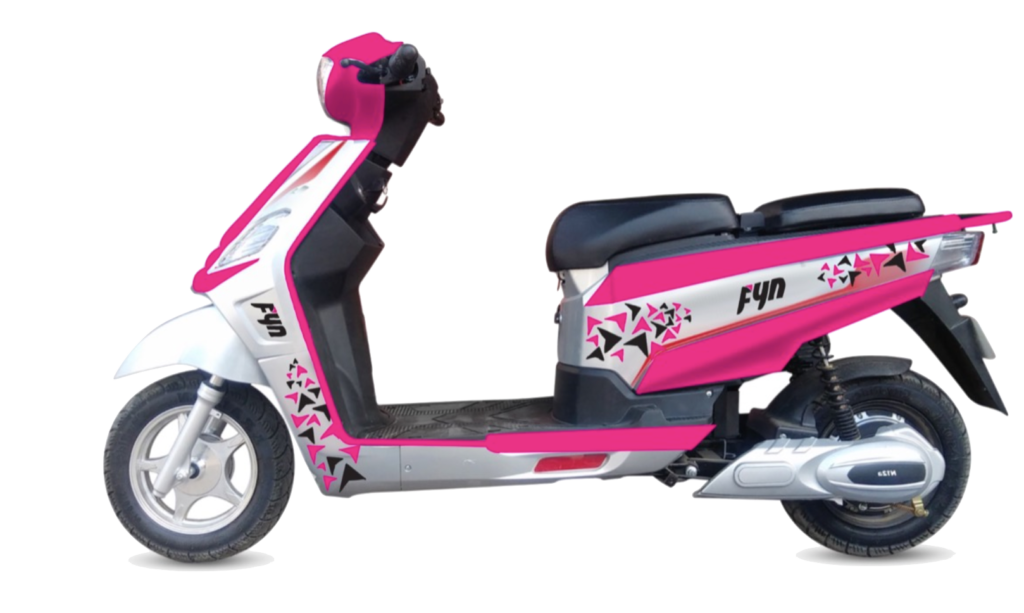
Fyn offers end-to-end micro-mobility through sustainable EV solutions along with data-driven insights, to augment productivity in last-mile logistics and transportation space. Their smart, green, and affordable EVs fleets are revolutionising transport and customer deliveries in e-commerce, retail, and small and medium businesses and large corporate and tech parks.
Founded by Visakh Sasikumar at IIT Madras in 2013, the start-up has pivoted to building India’s leading EV ecosystem platform with in-depth EV expertise, gained by selling more than 1,000 EVs in the B2B market.
Visakh Sasikumar, Co-founder & CEO Fyn Mobility is an entrepreneur with a vision to build sustainable and green transportation solutions. An IIT-Madras alumnus Visakh, has more than a decade of experience in building and launching EV products. He is currently building India’s largest vertically integrated EV ecosystem platform for last-mile logistics and commute applications.

1. Can you tell us about the inspiration behind founding Fyn, and what motivated you to focus on the EV ecosystem platform?
With the learning’s from working in the EV industry for more than 8 years, we found that EV as a service ecosystem didn’t have a player who is vertically integrated. The entire last mile logistics space was still following the manual way of deployment. The inspiration to start Fyn is to digitize the EV as a service ecosystem and ensure faster and efficient EV deployment. Our philosophy is that every EV should run for 20 hours a day. If you want to succeed in this, you should have a game plan with tech, utilisation and execution.
2. Can you explain how Fyn’s data-driven insights help improve productivity in last-mile logistics and transportation space?
Fyn Mobility captures a range of data from both vehicles running on ground as well as the rangers driving them. This is also available in real time for our customers to take important business decisions in terms of process corrections and logistics models which can both help in cost reduction and better customer service.
3. Can you discuss the impact that Fyn’s affordable EV solutions have had on small and medium businesses and larger corporate and tech parks in India?
Fyn’s current customer portfolio includes both large enterprises and SMEs. While larger customers have moved on from having our EV solutions just as a sustainability effort to actual cost optimization and better service levels to their customers, our SME customers have been able to clearly benefit on their working capital front, some of them able to outsource their entire logistics needs to us.

With Fyn’s offering and high service levels, we believe this is a growing trend and will be able to enjoy a greater share of wallet among all our existing customers and at the same time being able to attract new customers.
4. How does Fyn plan to expand its operations to Mumbai and Delhi, and what challenges do you foresee in doing so?
There are expansion plans in the works and we work with several key customers like Amazon, Flipkart, Big Basket etc who have PAN India presence and are urging us to provide our services in the other geographies. So, with respect to demand, we do not see a concern. However, there are different dynamics operating in these cities which we are studying before entering these markets.
5. Can you elaborate on the partnership with Altigreen and how it will help Fyn achieve its future goals?
We have a strategic partnership with Altigreen. There is a lot of synergy in what the two organizations do and this has led us to sign a MOU for 1500 fast charging 3 Wheelers this year. We believe the Altigreen fast charged vehicles are perfectly suited in our operations and our endeavor to maximize the utilization of these EVs. This partnership will only grow going forward.
6. Can you discuss the significance of the partnership with Exponent Energy and how it will benefit Fyn’s customers?
The partnership with Exponent is extremely important for us as this is allowing us to disrupt the EV-as-a-service market with the 15 minute charging which is perfectly suited for our operations. We can use multiple delivery partners, servicing different clients and ensure that our assets run 24 hours and also cover larger distances. All these factors have a positive impact on our clients in terms of utilization, productivity and visibility. We have been working with Exponent very closely on other projects as well and are confident to bring in more of such innovative technologies on ground.
7. Can you share any plans for Fyn to expand its services beyond last-mile logistics and transportation, and into other areas?
Our vision for Fyn is to be a one stop shop for all EV needs and we are rapidly progressing towards it. Vertical Integration is key to achieve this, including product, charging and parking infra and an EV ecosystem Platform.
We are building our own logistics smart two wheeler which will be another great product at an affordable price, which will also be our entry into the B2C segment. Our Platform will have all stakeholders with seamless transactions which will speed up our deployment process by an estimated 4X.

8. What role do you see Fyn playing in the larger shift towards sustainable and eco-friendly transportation in India?
As we add more fast charge and data driven fleets to the roads, we add more value to the overall goal of a sustainable EV ecosystem that is here to stay.
Replacing IC engine vehicles with EVs is not the right solution to make a difference. Bringing in fast charge vehicles that can do the job of 2 IC vehicles with just 1 EV will not only help businesses reduce operational expenses but also reduce the number of vehicles on the roads. Our EV ecosystem platform that gives all stakeholders real time data will also help in efficiently utilising every EV in the Fyn fleet by cross utilization of our idle vehicles.
9. Can you discuss the process of deploying 1,000 EVs in the B2B market, and what Fyn learned from this experience?
It is always a challenge to deploy the initial 1000 vehicles and the expansion from thereon we believe will be much easier. During the journey, we have moved from a people driven to a process & data driven organization. Our deployment TATs have reduced considerably and our understanding of our delivery partner behavior have evolved. We have also built ourselves into a position where, with limited manpower, we can manage higher no. of EVs on ground. This plays a big role on our path to becoming the biggest player in the segment and towards our profitability.
10. Can you talk about any future plans for Fyn to incorporate newer technologies, such as autonomous driving or AI, into its EV fleets?
Fyn has always been a technology first company and will continue to leverage technology to ensure better service to customers we cater to. Having solved the IOT integration, fast charging, on our assets, we are also exploring AI & ML to ensure that the multiple stakeholders talk to each other autonomously with least human intervention on our platform. We may be too early for autonomous driving in India, but are best placed in the industry to adopt such technologies as and when it becomes feasible.
5 Indian Companies Leading the Charge on Electric Mobility for a Greener Earth Day
Leave a Reply